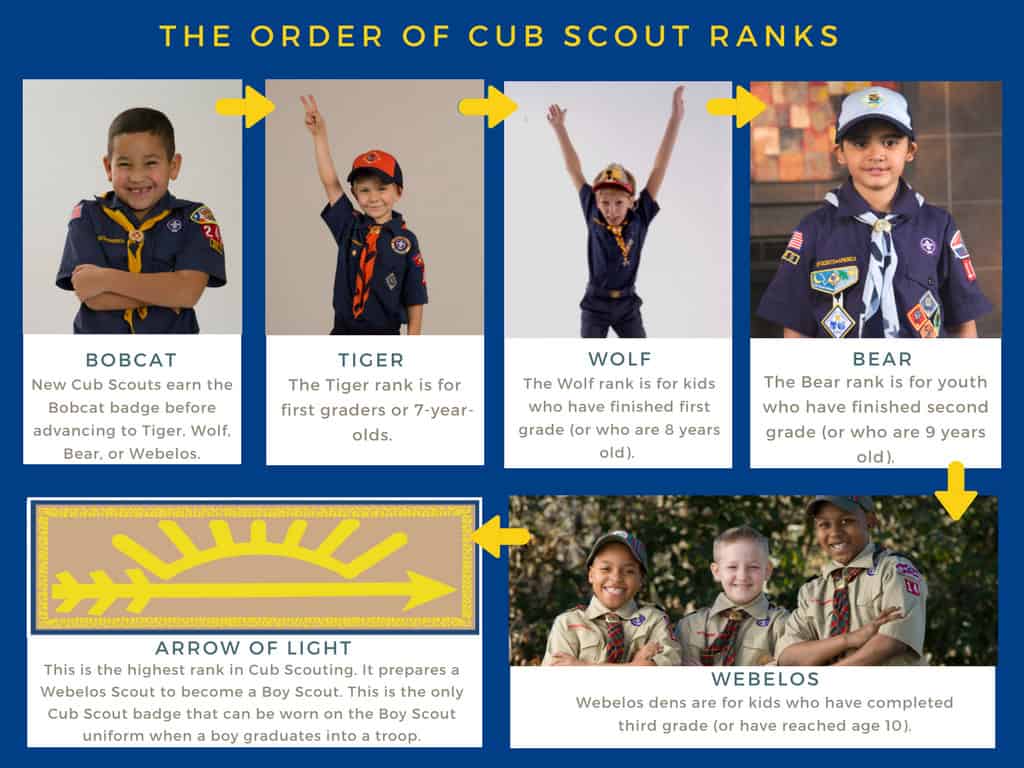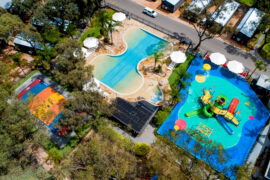Welcome to the World of Cub Scouts: Understanding the Right Age for Your Young Scout
Good day, fantastic parents! ? Are you pondering when it’s the perfect time to introduce your kiddo to the exciting and character-building world of Cub Scouts? Well, you’ve come to the right place! The Cub Scouts is an exceptional program that’s part of the Boy Scouts of America (BSA), designed for children who love adventure, making friends, learning new skills, and having tons of fun while they’re at it. ?
So, what’s the magic number? Cub Scouts is tailored for children from kindergarten through fifth grade, or roughly ages 5 to 10. This engaging program lays a foundation for a lifetime of character development, citizenship, and personal fitness. ???
But hey, let’s not jump the treehouse! Before we venture further into the woods of Cub Scouts, let’s get some basics down. Ready to learn more? Let’s go! ?
The Age Breakdown: What Cub Scout Rank Matches Your Child’s Age?
Cub Scouts is all about growth and progression. The program has different ranks that correspond to your child’s school grade, ensuring each adventure is age-appropriate and filled with endless fun and learning opportunities. Here’s a quick overview:
- Lion Cubs: Kindergarteners, around 5-6 years old
- Tiger Scouts: First graders, around 6-7 years old
- Wolf Scouts: Second graders, around 7-8 years old
- Bear Scouts: Third graders, around 8-9 years old
- Webelos Scouts: Fourth and fifth graders, around 9-10 years old, which then leads to Arrow of Light – the final Cub Scout rank before transitioning to Scouts BSA.
Each rank in the Cub Scouts comes with its unique set of adventures and activities designed to challenge and engage your child while meeting their developmental needs. ?
Flexible Joiners: Starting Cub Scouts Beyond Kindergarten
Missed the starting whistle at kindergarten? No worries! If your child is a bit older and hasn’t joined Cub Scouts in kindergarten, they can still hop on board. Cub Scouts welcomes new members at any point along their age-appropriate rank. Whether they jump in as a Bear or Webelos, they’ll still enjoy the full experience of fun and learning that comes with being a Cub Scout. ?
Oh, The Activities You’ll Do!
Imagine a place where your young one learns to camp under the stars, go on hikes, create cool crafts, and be part of a team. Well, that’s exactly what your child can look forward to in Cub Scouts! The activities lined up for each rank enhance not only practical skills but also boost the social and emotional development crucial for little ones as they grow. ???
With each new adventure and badge earned, Cub Scouts gain confidence, learn responsibility, and the importance of teamwork and community. No matter the rank or the age they start, each Cub Scout gets to experience the thrill of new accomplishments and the joy of making friends that last a lifetime. Friendship and fun, now that’s a winning combo! ?
So, dear parents, as we embark on this extraordinary adventure together, rest assured that the Cub Scouts program is a wonderfully suitable and adaptable experience for your curious and spirited child. Whether at age 5 or 10, your kid has a place in Cub Scouts, where they’ll learn, grow, and set forth on the path to becoming responsible and active adults in the future. ?
Cub Scouts is more than just an after-school activity; it’s a community and a family that strives to build a better world, one child at a time. So grab your child’s hand, and let’s step into the adventure that awaits within the Cub Scouts program!

5 Things Parents Should Know in Preparing for Cub Scouts
As you prepare to introduce your child to Cub Scouts, there are a few things you’ll want to consider. Here are five handy tips to get you both ready for the exciting journey ahead:
- Understanding the Commitment: Cub Scouts can be a time commitment for both parents and children. Ranks and badges are earned by completing activities, some of which involve family participation. Ensure you’re ready to support your child’s participation in meetings, events, and various activities. ??
- Gearing Up: There’s a bit of gear involved in Cub Scouts, such as the appropriate uniform, handbook, and some activity-specific items. Check with your local pack for a list of necessary items and consider reaching out to seasoned Cub Scout families for second-hand gear or pro tips. ??
- Volunteering Opportunities: Cub Scouts encourages parent involvement, so be prepared for volunteer opportunities. Whether you’re helping to organize an event or becoming a den leader, your contribution will enrich the experience for all the kids involved. ?
- Building Independence: The Cub Scouts experience is about developing independence and confidence. Be supportive but encourage your child to take ownership of their Cub Scout journey by managing their own gear, learning to complete tasks independently, and making decisions about the activities they engage in. ???
- Open Communication: Good communication with your child’s pack leaders can help ease any concerns and keep you updated on your child’s progress. The same goes for talking with your child, understanding what they enjoy, and what challenges they may face, ensuring a positive experience throughout their time in Cub Scouts. ?
Remember, parents are a big part of the Cub Scouts experience. By knowing what’s in store and getting involved, you can help make your child’s scouting adventure even more memorable and impactful. It’s not just about the badges and camping; it’s about the shared experiences, growth, and memories you’re creating together. Embrace this time with your child, keep it light and fun, and watch as they transform into proactive leaders of tomorrow. Enjoy the adventure! ????
See more great Things to Do with Kids in New Zealand here. For more information see here
Disclaimer
The articles available via our website provide general information only and we strongly urge readers to exercise caution and conduct their own thorough research and fact-checking. The information presented should not be taken as absolute truth, and, to the maximum extent permitted by law, we will not be held liable for any inaccuracies or errors in the content. It is essential for individuals to independently verify and validate the information before making any decisions or taking any actions based on the articles.




